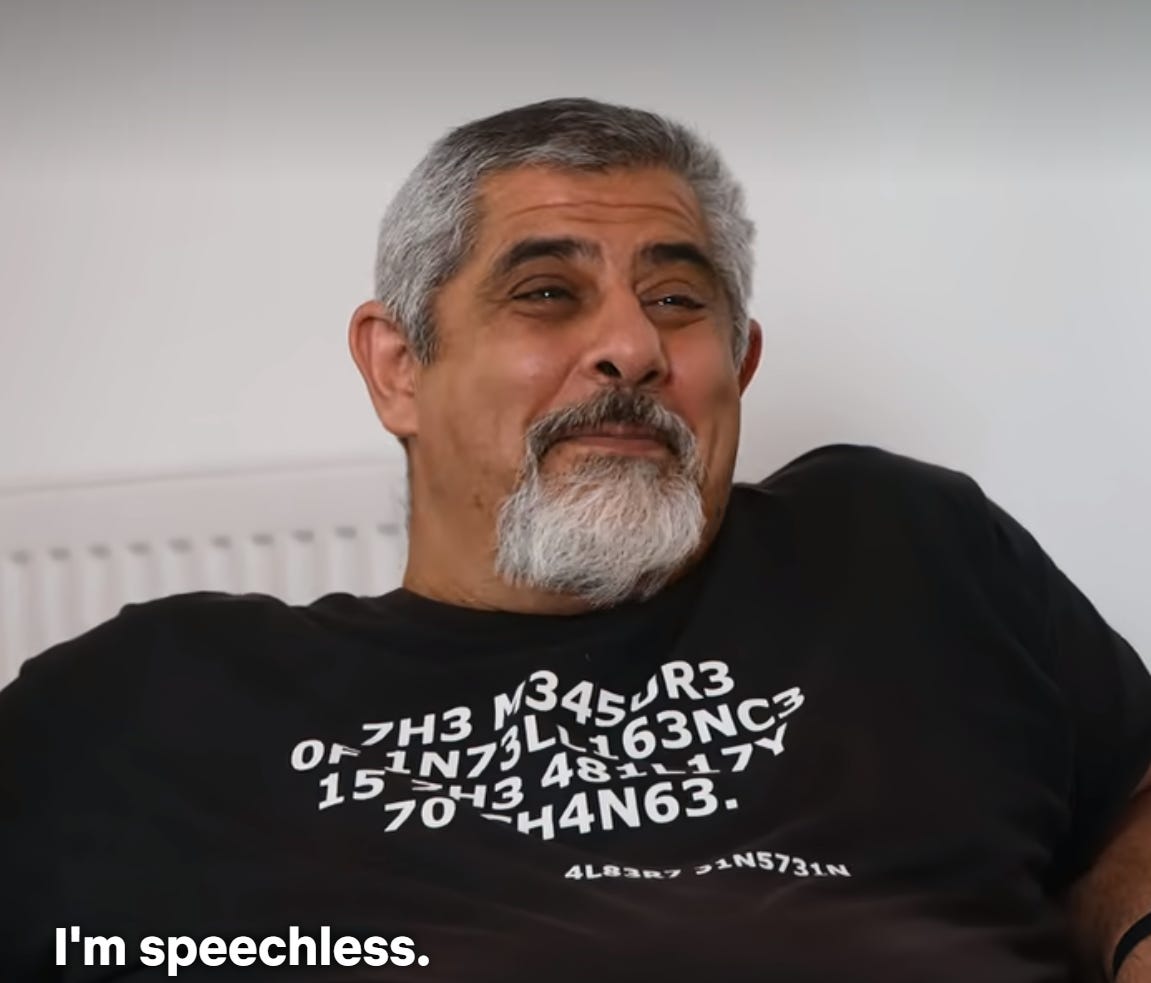It’s time again for the monthly
STSC symposium where our online group of writers, poets, artists, filmmakers, etc all produce a piece on one theme; this month’s theme is “Propaganda.” (My symposium pieces exceed my usual 500 words)We are undeniably gorgeous when we allow ourselves to be loved.
The people who know me best would say I have a bit of body dysmorphia, a smidge of body issue. But it’s more a terror of being witnessed in the whole - uncropped and unclipped.
The fear of being “seen” in all my nudity has collapsed and obstacled me in the past. Your body won’t open to a lover if you’re too focused on concealing your dense folds of Shar Pei belly skin. And you can’t let your limbs be free and ecstatic if you’re attempting to dam the delta of flesh that spreads from your arms and chest.
Somehwere in my rearing I believed I would be judged wholly, solely, mostly on the “look” of my body.
Was it the way the 3rd Grade boys cackled when Mrs. Pitt wore a sleeveless blouse on a hot day, teasing her that she could fly away with her wings of pendulous flesh?
Was it because one grandmother got drunk at a family dinner when I was 18 and affirmed with a clink of her martini, “Trilety, I love you. But you’re fat!”
Or because the other grandma convinced my mom to enroll me in a weight loss program when I was 15 because my legs had a “good shape,” but you know. . .I was fat.
My grandmothers were not the progenitors of the propaganda, they were just the victims I didn’t know yet.
I’m sure I have been judged on body alone, the same way I have caught myself judging others, but more often than not I watched women and was amazed. Amazed at how their storm-cloud cellulite didn’t prevent them from having a husband or wife. Amazed at how they didn’t apologize for the space they took up both physically and intellectually.
There is a split in me that has been being stitched up all my years, since I quit drinking, since I started seeing, since I let myself be seen.
During my last visit with my dad, we mirrored each other’s crossed-arm stance and talked about the family reunion I missed.
“I only knew the people in your generation and older, and most of those people are all passed.” - I explained why I didn’t attend.
“Hey kid,” he cocks his head, arms still crossed, “I get it.”
He rarely pushes back against me, though I often feel I bewilder him.
He told me of his cousin’s wife - “She was a knockout, a real Looker.”
This is not a slight to me, but I compare anyway. Because “knockout” was my goal growing up as a cute, fat kid.
“And she can drive equipment too, and work with tools.” - he continues to praise a woman probably my age or a just a little bit older.
Again, this is not a slight to me, but I compare anyway. Because I can barely get the roll of packing tape on the packing tape gun without Jim’s assistance.
He told me of his cousin, the “knockout’s” husband - “He has the McManus curse,” my dad’s face wrinkled like someone in the path of halitosis.
“What’s that?” I ask, not recalling ever hearing of this.
“You know, the McManus’ have a tendency to be portly or rotund,” he explains with a bit of blowfish breath to his cheeks.
I laugh. He laughs. We laugh.
Both my dad and I are formerly fat, but he seems to approach the world of overweight the way a former smoker approaches cigarettes, with disdain and superciliousness.
My dad is accidental propaganda, working with passing words instead of graphic posters. He loves me tho, and I love him, but I perceive that our relationship is better when I’m thin. . . perception may not be the reality of truth, but it is the reality of me.
Lately, I’ve been watching the Netflix show “Queer Eye: Germany.” We used to travel there when I was a pre-teen; it was the place where I saw my first in-person penis as I swam in a hotel pool and emerged to a naked couple also taking a dip. The woman left no recollection in my brain but I could build that man back from my memory alone if you gave me enough clay and a skill for sculpting. But I also watch German shows to feel linguistically nearer to a good friend who lives there.
There is a moment in every Queer Eye episode where the “star” of the reality program shows off their new style of hair, makeup, and wardrobe. In the 2nd episode of the 1st season of Queer Eye Germany, Ulli struts into the living room where not just the Queer Eye crew awaits her new look, but her husband too.
Her body shape and weight are unchanged. The denim of her jeans wraps itself in a desperate desire for her lusciously plump thighs, and her hair, now out of the daily constraints of a ponytail, has a bit of lilt it didn’t have just a few days before.
But the real change is in her energy and attitude.
It is this transformation of the way she sees herself that stuns her husband. Our eyes are the giveaways of our truths and lies, and his eyes gleam. On the verge of cry, he utters “I’m speechless.”
The physical transformation of Ulli is barely there, mild at best, but what her husband witnesses again for the first time in so long is a woman who sees what he has always seen.
Jim sees me like this, unconcealed in my Ulliness. We can spend a weekend together doing chores and yard work, unshowered, my hair an oily tempest and my comfy clothes hiding any sense of hip or tit, and he will wink at me as I walk by, his blue eyes crystalline and say, “I love you!”
Existing in your natural state, without the second voice in your head telling you to cover-up, to be ashamed, to stay away, is a liberation. It is the feeling of unleashing your never-once perky breasts, of letting your dress cling to the ripples of your flesh, of just loosening the fuck up.
Victims of propaganda don’t know they’ve been victimized. And it’s tough to even identify the propaganda that results in us believing a lie. But by the time I am more wrinkle and crease than supple and silk, I will surely be 100% de-propagandized.




I have never been fat, but the propaganda goes so much deeper than that. My bodily struggles are slightly different than yours, but they exist nonetheless. I could have written this about myself, just like I'm sure every woman could. This essay is beautiful, just like you.
a beautiful read!